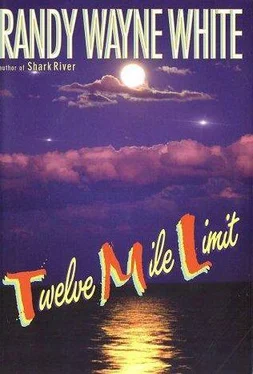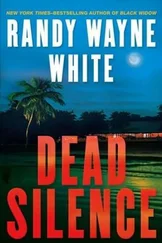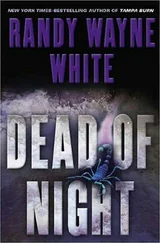Randy White - Twelve Mile Limit
Здесь есть возможность читать онлайн «Randy White - Twelve Mile Limit» весь текст электронной книги совершенно бесплатно (целиком полную версию без сокращений). В некоторых случаях можно слушать аудио, скачать через торрент в формате fb2 и присутствует краткое содержание. Жанр: Триллер, на английском языке. Описание произведения, (предисловие) а так же отзывы посетителей доступны на портале библиотеки ЛибКат.
- Название:Twelve Mile Limit
- Автор:
- Жанр:
- Год:неизвестен
- ISBN:нет данных
- Рейтинг книги:4 / 5. Голосов: 1
-
Избранное:Добавить в избранное
- Отзывы:
-
Ваша оценка:
- 80
- 1
- 2
- 3
- 4
- 5
Twelve Mile Limit: краткое содержание, описание и аннотация
Предлагаем к чтению аннотацию, описание, краткое содержание или предисловие (зависит от того, что написал сам автор книги «Twelve Mile Limit»). Если вы не нашли необходимую информацию о книге — напишите в комментариях, мы постараемся отыскать её.
Twelve Mile Limit — читать онлайн бесплатно полную книгу (весь текст) целиком
Ниже представлен текст книги, разбитый по страницам. Система сохранения места последней прочитанной страницы, позволяет с удобством читать онлайн бесплатно книгу «Twelve Mile Limit», без необходимости каждый раз заново искать на чём Вы остановились. Поставьте закладку, и сможете в любой момент перейти на страницу, на которой закончили чтение.
Интервал:
Закладка:
Standing inside the guardhouse, with three Colombian soldiers, was a tall, blond man wearing dark slacks and a white short-sleeve dress shirt. He could have been a model for a catalogue company. As I stepped from the cab, he came out, shook hands, and said to me, “My name’s Ron Iossi, Commander Ford. I’m with the embassy. I’ve been instructed to assist you on this mission.”
I’d been expecting someone like him to be waiting for me. Was glad, in fact, that he was there. The word embassy was a euphemism for the CIA.
He had a Humvee, engine running, driver waiting. We drove through the tree shadows and beneath streetlights, through the military complex, on the road that parallels Cartagena Bay. Like many military bases, the architecture was repetitive, as if stamped from a mold, and dated well back into the previous century.
I only got a glimpse of the base’s main docks. Among the Coast Guard cutters and light naval ships was a row of private vessels, both power and sail, anchored below powerful security lights. They’d probably all been seized because of some kind of illegal activity, so I was not surprised to see a black oceangoing motor-sailer there, more than one hundred feet long. I recognized the boat as having once belonged to a man nicknamed the Turk by a transplanted Australian friend of mine. The vessel had Istanbul registry and was christened The Moon of something. I’d forgotten exactly what.
That afternoon, when Amelia and I had had some free time, I’d tried to contact that Australian friend, Garret Norman, by calling Club Nautico, the local marina he owned. Garret’s a smart, observant guy, and he could have provided me with some useful insights into Colombia’s kidnap trade.
Instead, Candelaria, Garret’s wife, gave me a surprising update on what had happened since I’d last been in Colombia. The Turk had been found shot in the back of the head, floating in Cartagena Bay. Garret had been arrested on unassociated-and bogus-charges. He’d escaped from jail and fled the country.
No one knew where he was.
“Garret always liked you,” his wife told me. “He trusted you. You and your crazy old uncle. The one who beat up the Turk that time. What was his name?”
The way she spoke of her husband in the past tense gave me the uncomfortable feeling that Garret was dead.
No way of me finding out. In Colombia, people disappeared so commonly, so suddenly, that authorities no longer bothered to keep track.
The center for Colombia’s counterterrorism special forces, the Fuerzas Especiales Anti-Terrorista, is located on the bay side of the Cartagena base, not far from the old three-story tropical white house where the U.S. Drug Enforcement Agency and the CIA both keep offices.
We stopped briefly at that house, and Iossi-he pronounced it “Yohsee”-led me inside, then handed me several documents, including a laminated Colorado drivers’ license that identified me as “Marion North.”
I said, “You guys work fast.”
“Not us, the computer. Press a couple buttons, then hit print. Presto. It’s kind of what we do.”
“This picture’s at least ten years old.”
“It’s the only one we had on file. The other documents are important. Keep them on you at all times. They identify you as a privately employed mercenary for hire. A headhunter.”
I said, “Headhunter?”
“It’s a term we’ve come to use. There are still real headhunters out there in the jungle-don’t let those little bastards catch you-but this means something different. It means you’re an American soldier of fortune. Up in the mountains, there are probably a dozen ex-SEALs, former Rangers, Delta Force guys. Maybe more. Came down here to make lots of money as bounty hunters.”
“You’re kidding.”
“Nope. An absolute fact. They’ve been hired by the Colombian government, using a front business called Gin-EE Electronics out of Virginia, or a dummy corporation called SAIC. They’re mercenaries hired to kill retreating FARC troops. They’re hired specifically because of their backgrounds and the quality of their work in Southeast Asia, the Middle East, Central America, Africa-the world. They’re each assigned their own little territory, kind of like gold claims back in the old days. The more successful they are, the bigger their claim gets.”
I said, “And that’s what I’m posing as?”
Iossi said, “Commander Ford, hopefully this evolution will go down so fast and hard, you’re not going to need to pose as anything. But if something goes wrong, if you’re captured or killed, the company can’t be associated with you in any way. SOP-standard operating procedure. If someone asks us who you are, we’ll tell them you’re a gun for hire, you’re a headhunter. Simple as that. You are not with us.”
I nodded. “Killing people to get rich.”
Iossi was walking toward the door. “Killing killers to get rich. Yeah, a couple of our people have made a ton of money.”
The Colombian Anfibios all looked like teenage boys. There were four of them in full camouflage battle dress, faces painted, boonie hats pulled low. All together, they carried an M-16; some kind of stockless, sci-fi looking automatic shotgun; a 60-caliber machine gun; and a Knight’s Armaments sniper rifle, complete with a complicated new generation of Startron night-vision systems that I’d never seen before.
Maybe they had gotten better.
Their commanding officer was Lt. Rafidio Martinez, a very short, squat wrestler type who wasted no time making certain I knew exactly who was in charge.
“Once we locate the facility, Commander, the helicopter will hover, and our team will fast-rope to the ground. You will stay in the stern of the ship, out of our way. We don’t want to risk those lines getting tangled or someone accidentally knocking you out of the ship.
“Once we have secured the facility and taken down any resistance, we will signal the chopper to land. Then and only then can you enter the facility. Questions, sir?”
Nope. No questions. I liked the way the guy took command. In fact, I found it very reassuring.
The Anfibio had gotten better-or so I thought.
They walked me out through the early morning darkness to the helio pad. There I saw what appeared to be a ultramodern Plexiglas bubble attached to a khaki and camo fuselage. The aircraft had a six-bladed main rotor and a canted four-bladed tail rotor. There were infrared sensors in several places on the exterior, rocket tubes, a bristling of antenna and miniguns, plus twin external dismount planks.
I’d seen one of these choppers before. It was a high-tech, special-duty helicopter named Little Bird. Its principal role was to ferry commandos into tight situations. Troops rode on the two planks attached to the aircraft’s sides, enabling them to dismount immediately upon touchdown.
Martinez had told me his crew would be fast-roping in- sliding down woven lines when the chopper was within seventy feet of the ground.
So we didn’t need the planks, but I was inordinately pleased we’d been assigned such a craft. The chopper had to be massively expensive, which meant superiors would entrust the thing only to a first-rate pilot. Also, all the sensory systems suggested to me a level of electronic sophistication that would make certain the pilot was warned if someone opened fire on us with missiles or other guidance-system weaponry.
In other words, we wouldn’t be a fat target as we flew low over the jungle.
There was a reason I was concerned. I hate flying in choppers. I’m not a particularly emotional person, but my fear of them approaches phobia. Maybe it’s because they glide like a rock.
More likely, it’s because I was once in a chopper that was hit with light weapons fire and lost its transmission. The pilot had to put it into an autorotation to get the ship down. It was one of the most sickening, helpless feelings I’ve ever experienced.
Читать дальшеИнтервал:
Закладка:
Похожие книги на «Twelve Mile Limit»
Представляем Вашему вниманию похожие книги на «Twelve Mile Limit» списком для выбора. Мы отобрали схожую по названию и смыслу литературу в надежде предоставить читателям больше вариантов отыскать новые, интересные, ещё непрочитанные произведения.
Обсуждение, отзывы о книге «Twelve Mile Limit» и просто собственные мнения читателей. Оставьте ваши комментарии, напишите, что Вы думаете о произведении, его смысле или главных героях. Укажите что конкретно понравилось, а что нет, и почему Вы так считаете.












